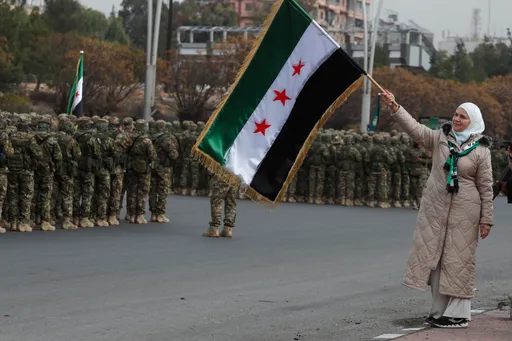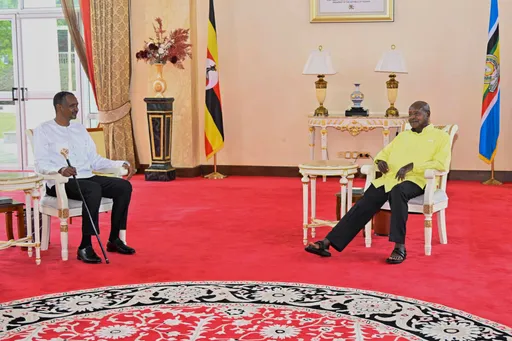March 30 marked the end of Lisa Smith’s nine-week trial in Dublin for terrorism charges, and she is now waiting for the judgement in her case to be handed down. Like every defendant before the Irish courts, she is innocent until proven guilty.
Smith, a former Irish soldier, crossed into Daesh-controlled Syria in 2015, where she married an alleged Daesh terrorist and gave birth to her daughter in Raqqa. When the Western coalition began their battle to oust the terror group, she fled to the YPG/PKK-run Ain Issa and Al Hol Camps in northeast Syria.
She and her daughter were detained by Türkiye in 2019, after Ankara’s operation in Syria, and deported to Ireland.
When they were found, Irish Prime Minister, Leo Varadkar, emphasised that Smith and her daughter were two Irish citizens and that Ireland needed to take responsibility for them. Unlike other EU countries, there was never a suggestion that Smith’s citizenship would be stripped or that the child would be separated from her mother.
“I want her child to be able to come home, I would never separate a mother and child, so yes, I want her to come home,” said Varadkar on an Irish radio show in 2019.
“Of primary concern to the government, in this case, was the welfare of a young child who was caught in the middle of a war zone,” said the Irish Department of Foreign Affairs and Trade in a statement to The New York Times.
The Irish military repatriated Smith and her daughter to Ireland in December 2019, a few months after she had been found in the Ain Issa camp. On arrival in Dublin, she was charged with joining and financing a terrorist group.
Some will undoubtedly criticise the Irish government for repatriating Smith. However, no matter the ultimate outcome of the trial, Ireland took the correct and responsible decision in bringing her and her daughter home.
The European response
Europe was quick to celebrate Daesh’s defeat in 2019 but reluctant to deal with the thousands of people who travelled from European countries to fight and live with their families in the so-called caliphate established by the terror group.
Women in Daesh were mostly housewives and mothers rather than fighters. Yet many Western governments have refused to repatriate these families from Syria, citing security concerns and the difficulties of prosecuting people for offences that may have happened in Daesh-controlled territory.
Today, thousands of women and children from 60 different countries and linked to Daesh remain in the Al Roj and Al Hol prison camps in northeastern Syria. Most of the camps' 60,000 residents are children, and conditions there have been widely criticised by aid agencies and human rights watchdogs.
Last year alone, 74 children were recorded as dying in Al Hol camp, including eight children who were murdered.
Some of the women held in these camps willingly travelled to Syria with their husbands or male family members — often after viewing propaganda videos that idealised living conditions — while others were victims of grooming and forced marriage, such as members of the Yazidi community.
France has said that its citizens can be tried in Syria and Iraq even though the legal process, where defendants face execution, is being criticised by human rights organisations. In one case, French authorities refused to allow a Frenchwoman with advanced colon cancer to return home from Syria for treatment.
Last year, Shamima Begum lost her appeal against the decision of the UK government to strip her of her British citizenship for joining Daesh. The British woman travelled to Syria as a 15-year-old schoolgirl. Disowned by the country she grew up in, Begum remains in Al Roj camp.
Refusing to repatriate Smith would have meant handing down an indefinite jail sentence without trial to her and her daughter in conditions fraught with danger in camps in Syria.
Lessons from Smith
What attracted people to live under a regime as brutal as the one run by Daesh needs to be understood.
The trial process in Dublin has helped shed light on how Smith made the decision to travel to Syria in 2015.
Smith has said that an Irish convert to Islam taught her about Osama bin Laden and told her she had to quit her job with the army because Islam forbade it.
Social media has been a powerful recruitment tool for radical groups. The evidence at Smith’s trial included thousands of messages sent through a Facebook group called, "[w]e hear, we obey.”
The court also heard evidence of her online exchanges with John Georgelas, an American Daesh propagandist who encouraged her to travel to the so-called caliphate. In 2015, Georgelas arranged for her to travel to Syria. One witness at Smith’s trial said that Georgelas was “clever, manipulative, and overwhelm[ed] people with scripture.”
Radicalisation is as much a home-grown problem as a foreign one. Western countries cannot ignore the complex social and economic reasons that make violent extremism an attractive proposition to its citizens. Nor can they continue to outsource their responsibilities to governments in Iraq and Syria that lack the resources to deliver justice or basic social services to detainees.
Anyone suspected of carrying out crimes for Daesh should be prosecuted under the law, as the Irish courts have done in the case of Smith. European countries need to take responsibility for their citizens in Syria, particularly children and provide them with a safe route back home where they can face justice if necessary and be given a chance to rebuild their lives.




























